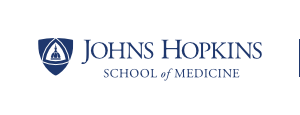Write a blog entry for Biomedical Odyssey: Adventures from the Johns Hopkins University School of Medicine
"This blog is written and edited by our students, residents, postdocs and fellows. They share stories about daily life in the classroom, their experiences with residency, research they’re working on, the best parts about living in Baltimore and tips for future medical students and researchers."
Science Communication
Professionals in science communication make complex scientific information accessible to lay or public audiences. They serve as liaisons between research scientists and the world beyond the bench. Common science communication positions include science writers, journalists, education outreach professionals, communication managers, and press managers for scientific institutions and museums. Success in these careers will require excellent written and oral communication skills.
The Professional Development and Career Office hosts a Communication and Advocacy Career Community that meets monthly for six months. The workshops expose trainees to a variety of careers in science outreach and science writing with the intent of helping trainees narrow down what science communication careers interest them most.
Interested in a career in science communication? Check out the resources below to develop your skills for this quickly expanding field.
| Dr. Lily Raines | |

|
Dr. Lily Raines completed her PhD at Johns Hopkins in the Biochemistry, Cellular and Molecular Biology program in the department of Biophysics and Biophysical Chemistry. During her graduate work, Dr. Raines was a Science Outreach Intern at the American Society for Biochemistry and Molecular Biology (ASBMB) as part of the Biomedical Careers Initiative program at Hopkins. After Hopkins, Dr. Raines started at the American Chemical Society as a Global Projects Manager of International Activities. She currently works at the American Chemical Society as the Manager of the Office of Science Outreach. |
Gain Skills and Experience
"We aim to bridge the communication gap between scientists and their communities by creating and supporting opportunities to foster public interest in scientific research."
The American Association for the Advancement of Science (AAAS) offers paid internships throughout the year in science writing, science policy, and publishing marketing and sales.
Consider applying to the AAAS Mass Medial Science & Engineering Fellows Program. This 10-week summer program places science, engineering, and mathematics students at media organizations nationwide. Fellows use their academic training as they research, write, and report today’s headlines, sharpening their abilities to communicate complex scientific issues to the public.
"Baltimore Underground Science Space (BUGSS) is a public laboratory offering classes, seminars, and lab access so that anyone can safely and affordably investigate the living world. We are a community of amateurs, professionals, citizen scientists, activists, and artists exploring biotechnology through scientific and artistic investigations."
The Center for Leadership Education houses the Program in Entrepreneurship and Management and the Professional Communication Program. Both programs offer a range of writing-intensive courses which focus on writing for business, industry, and science at the graduate-level.
The Council for the Advancement of Science Writing is committed to improving the quality and quantity of science news reaching the public. Directed and advised by distinguished journalists and scientists, CASW develops and funds programs that encourage accurate and informative writing about developments in science, technology, medicine and the environment.
